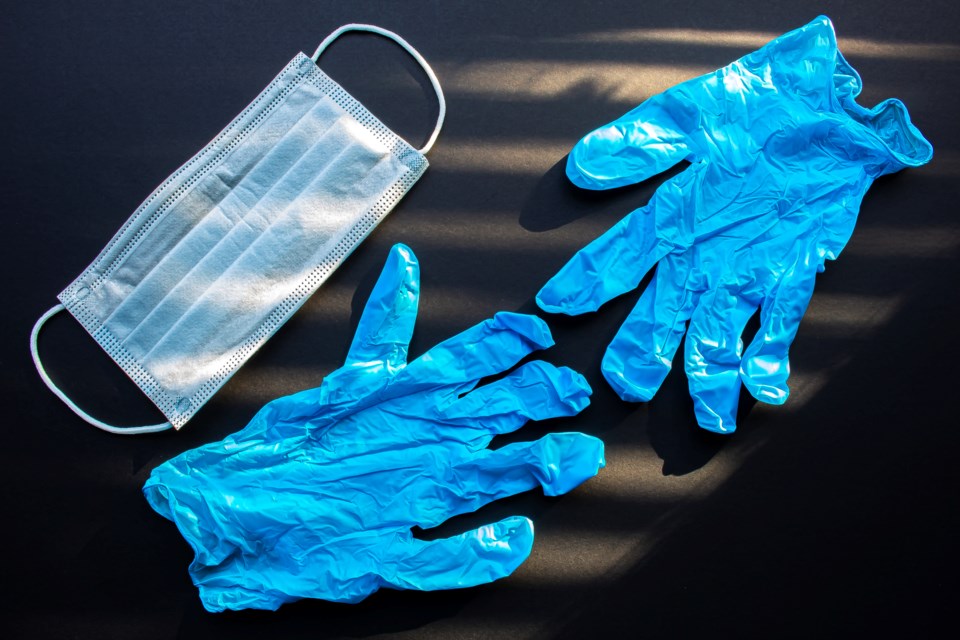Manitoba announced another round of COVID-19 health orders and restrictions Friday, but very little will change in the north this time.
The restrictions go into effect as of midnight Nov. 13 and were announced by Manitoba health minister Audrey Gordon and chief provincial public health officer Dr. Brent Roussin Nov. 12.
The biggest province-wide change is that, starting December 5, children and teens from 12-17 years of age will need to have at least one COVID-19 vaccine dose or a recent negative COVID-19 test to play in indoor youth sports. Previously, participants in indoor youth sports under age 18, including minor hockey and high school sports, would not need to have been vaccinated against the disease.
Parents and kids will have more than three weeks to get at least partially vaccinated before the new health order officially goes into effect. COVID-19 tests that meet the provincial requirement can be acquired at pharmacies for a cost - provincial testing sites are, according to provincial protocol, reserved for symptomatic people or for those required to take PCR tests by public health. In order to fit within the order, a negative test result must have come back within three days (72 hours) of the sporting event to allow for play.
The same rules will apply to overnight camps, according to the updated health orders.
"It's frustrating to be here again. I think we're all disappointed, we're all frustrated that we're once again looking at further restrictions, once again, looking at upwards trajectory where our healthcare system is again strained, which really puts that strain on COVID-19 and non-COVID-19 care," Roussin said in a Nov. 12 press conference.
"We need to continue to do what we can to bring down transmission to protect all Manitobans, whether they have COVID-19 or not."
The second main change is centred on the area of Southern Health-Sante Sud, where a disproportionately high amount of hospitalizations and intensive care admissions due to COVID-19 have been reported. The region also features, by some distance, the worst vaccine uptake rate of Manitoba's five health regions.
Starting this weekend, all religious gatherings in Southern Health without a vaccine requirement to enter are limited to 25 people, unless attendees are cohorted in separate rooms - if they are, then services can be held to either 25 per cent capacity or 250 people maximum. Masks must still be worn indoors at all times.
Religious services that do have a vaccine requirement in place can operate without the new limits. The new rules will also only be in effect for some health districts in the region - areas near Winnipeg, which have seen fewer cases and higher vaccine uptake, will not be covered by the changes. Those include the municipalities of Cartier, Headingley, Macdonald, Niverville-Ritchot, St-Francois Xavier and Tache.
All other remaining health orders, including for public and private gatherings and indoor mask use, remain in effect.
"Thse orders will continue to allow fully vaccinated Manitobans to enjoy as much freedom and as few restrictions as possible, while unvaccinated individuals will continue to be restricted in their activities in order to reduce transmission and that risk," Roussin said.
"These are fellow Manitobans who are falling ill, being admitted to ICU and unfortunately, some are still dying. The more that we can get vaccinated, the more that the unvaccinated are limited in the interaction amongst others, the more Manitobans we're going to protect from from COVID-19. I want to thank all the Manitobans who are following the public health orders and the fundamentals and of course, the vast majority of Manitobans who have been vaccinated."
Roussin said that, if COVID-19 spread isn't curtailed, further restrictions could still be on the table for Manitoba or for specific regions.
"We've always relied on Manitobans to do what's best for Manitoba, for themselves and to protect themselves and people around them and our province and our health care system. Please follow those fundamentals, please adhere to these public health orders and we continue to follow things," said Roussin.
"If we continue to see strain on our health care system, further steps may be required."
Modelling data shown Nov. 12 show that cases of COVID-19 are rising in four of Manitoba's five health regions, almost doubling in Winnipeg. The only region where cases aren't seeing growth is the Northern Health Region.
The age group seeing the most new COVID-19 cases in provincial modelling is in youth - people ages 0-19. In the NHR, about 40 per cent of all reported COVID-19 infections have been found in people under age 19, with 20 per cent of all cases in kids nine years old or younger - in total, 1,851 northern children nine years old or younger have had COVID-19.
Manitoba projections show that intensive care admissions and hospitalizations due to COVID-19 are expected to rise without intervention. By December, at current rates, public health expects three more people each day to require intensive care for COVID-19. According to Shared Health provincial COVID-19 operations chief Monika Warren, some surgeries in Manitoba may be disrupted, starting next week, due to COVID-19-related health care system strain.
"As we continue to build up our capacity to respond to what we can now confirm is a surge, there is an unavoidable impact to non-COVID-19 care. Over the past number of weeks, we have been preparing for this increase in hospitalization by taking a very close look at our patient demand for our hospital beds and our available capacity," said Warren.
"These reductions in surgical activity will allow for an increase in beds and we anticipate bringing our ICU bed numbers to approximately 110. As a reminder, our normal pre-COVID-19 ICU baseline is 72.
Warren said the change was not made lightly, adding that the decision to delay surgeries would only be made if absolutely necessary.
"We did not want to be here again and we are both grateful to the staff whose work and personal lives are once again being disrupted."




